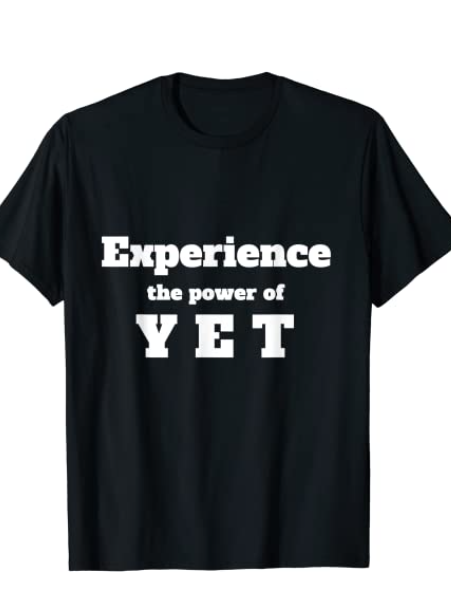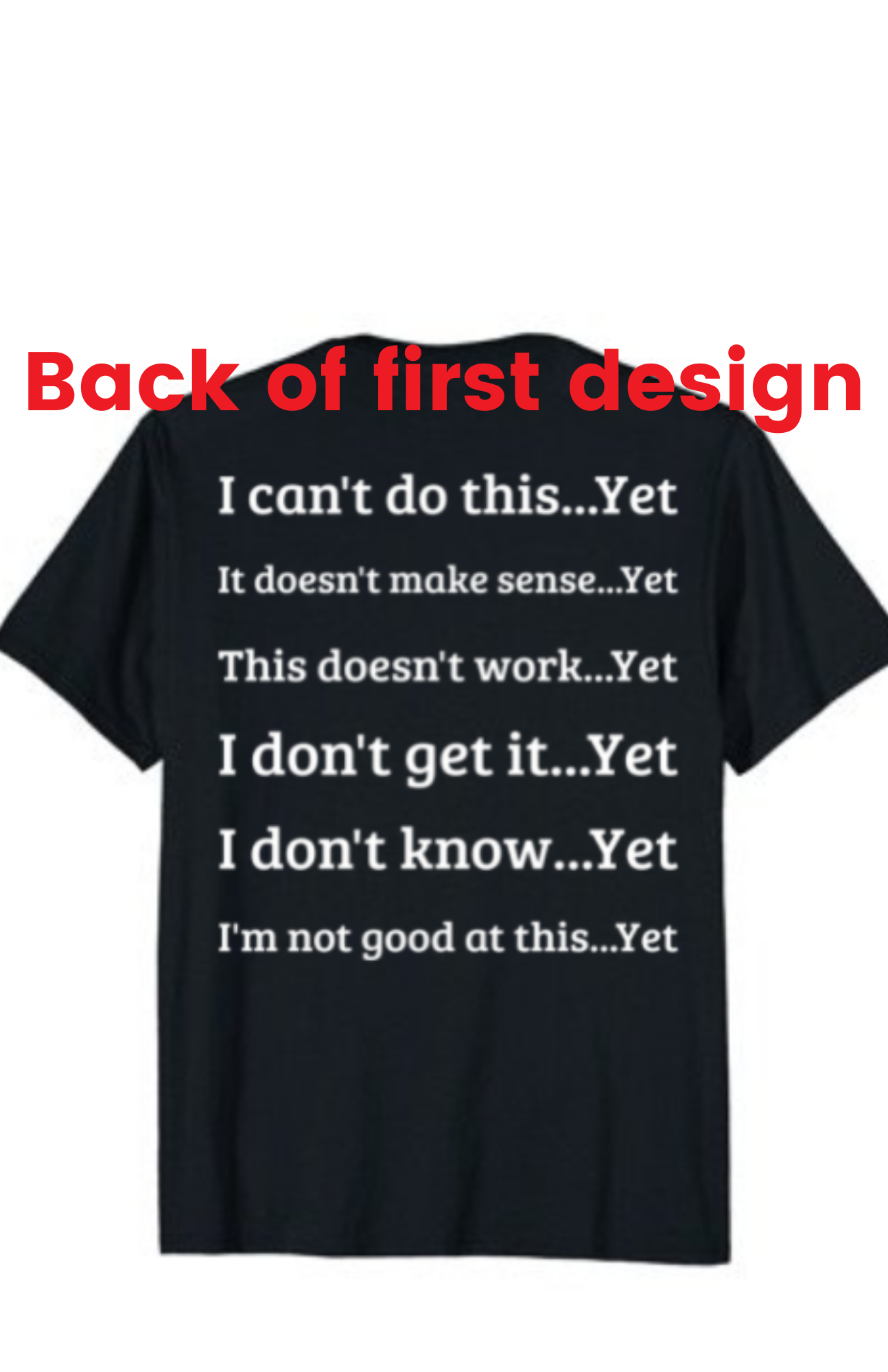Harness the Power of YET
Teach Them How to Fail, So They Can Succeed
Each time I write or voice those words I can feel parents’ cringe. Failure has become such a negative that students and parents will often do anything to prevent it from happening. Mistakes are part of the learning process. They are to be celebrated rather than avoided. Albert Einstein said, “A person who never made a mistake never tried anything new.” As a parent it is difficult to watch your child struggle. At times, the desire is to pave the path to make things easier. This desire works against a child preventing them from learning the valuable lesson of persistence. Establishing a growth mindset allows a learner to engage in productive struggle, an essential component in the learning process (Dweck 2016).
Whether you are a parent or an educator, understanding the learner you are dealing with is always the place to start when striving to meet learner needs from both an academic and social/emotional perspective. All learners bring a unique set of characteristics to the table; perfectionism can be at the forefront. This characteristic can directly impact how the student connects with the learning opportunities offered to them. Dictionary.com defines perfectionism as a personal standard, attitude, or philosophy that demands perfection and rejects anything less. Most learners want to be correct; to have the right answer but perfection that is left unchecked can take this desire to a whole new level. “Perfectionism on steroids” can leave a learner unable to take the risks that are necessary to function in the learning environment. It can keep a learner from attempting to engage in learning. Learners may set impossible goals, limit their options to avoid taking risks. They often cannot enjoy the moment because they are too worried about the future (Delisle & Galbraith, 2002). Supporting the perfectionist in moving forward can feel overwhelming for both the learner and parents but there are a few strategies that can help.
First, praise the effort, not the product. When the product is praised the perfectionist’s need to create perfection is being reinforced. Excellence is the goal not perfection. Praising the effort allows the learner to see that it is not about the product but rather it is about the effort that one puts into the task. For example, think about that vocabulary quiz your child brought home. The score earned was 23/25, a very commendable effort. Was your comment, Great job; you worked hard on those words! Or What happened when we studied those two? Without intent the second response tells the learner that anything less than perfect is unacceptable. Learners must learn how to separate their self worth from the product that they create.
Second, create a failure safe zone and prep your learner for mistakes. A failure safe zone is quite simply a place where it is acceptable to be unsuccessful. Prepping for mistakes may sound a little strange but it is just the practice of role-playing what might happen in each situation.
What if you do not get every answer correct?
What if your presentation earns a B?
What if the group does not choose your idea?
What if you fail?
By prepping for mistakes, you allow the learner to be ready from a mental and emotional perspective. It is important that the learner sees errors within the framework in which they exist. A failed attempt is not the end; it is just the beginning of the learning process. This is a growth mindset in action. We do not live in a growth mindset. The key is to be able to recognize when one is functioning in a fixed mindset and be able to get out of it.
Third, add a three-letter word to your vocabulary. One little word, three letters but the impact it has is explosive! What is the word you ask, Yet! It does not sound amazing or exceptional until you connect it with a task. So, give it a try, think of something that you are trying to learn, maybe something that you are struggling with, NOW add that little word.
I cannot play the piano well, YET!
My writing is not stellar, YET!
Or as a young learner, I am not good at multiplication, YET!
I can’t ride without training wheels, YET!
Do you feel it, that sense of purpose and confidence? It came from that little word. You see, “yet” says it may not be happening now, but it is going to happen. It gives you encouragement and permission to keep trying! Build a Yet Board, every house and classroom need one. It can be on the back of a door, on the bulletin board, or even on a bathroom mirror. A “Yet” board has a stickie note sharing one thing that you cannot do well but are working on. What will your Yet Board stickie note say? Remember the goal is not perfection, it is improvement!
Excellence rarely happens in high leaps rather it is achieved as the result of step-by-step incremental improvement. A key factor to success is the ability to persevere in the face of obstacles. Perhaps the most valuable lesson to be learned though is that failure can be constructive.
Celebrate all that life has to offer, mistakes and successes! Let your child see the world in ways that others can only imagine. Supporting them in learning how to navigate the challenges that they face does not mean removing the obstacle rather it means teaching them to see it for what it really is a chance to grow! It’s all about the “Yet”!
If you would like to read more by Karen Brown. Check these out!
Get the latest blog post and subscriber-only discounts delivered right to your in box.
References
Delisle, J. R., & Galbraith, J. (2002). When Gifted Kids Don't Have All the Answers: How to Meet Their Social And Emotional Needs. Minneapolis: Free Spirit.
Dweck, C. S. (2016). Mindset: The new psychology of success. New York: Ballantine.
Top 30 Most Inspiring Albert Einstein Quotes. (2018, October 09). Retrieved from
https://www.goalcast.com/2017/03/29/top-30-most-inspiring-albert-einstein-
quotes/









